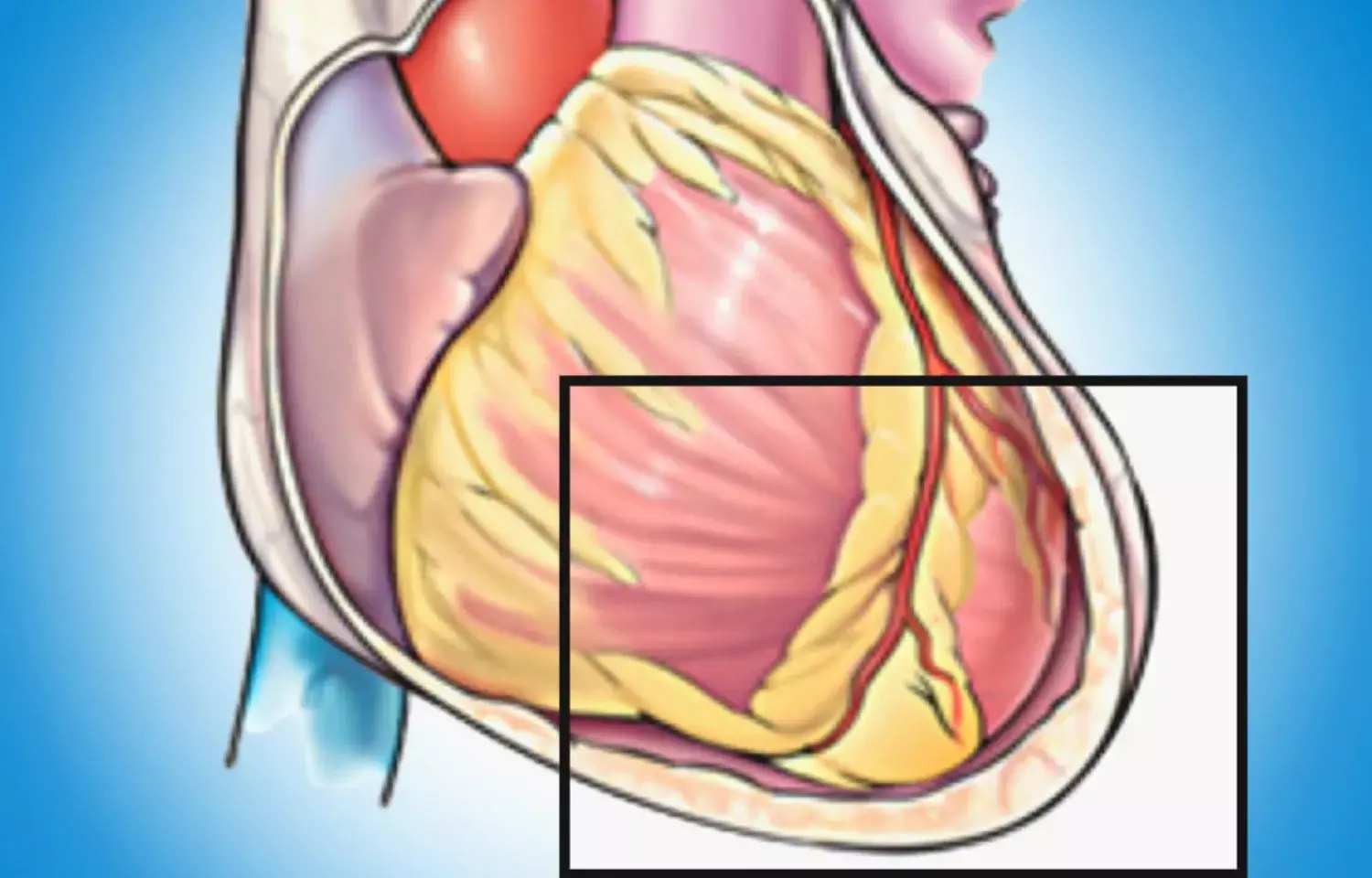- Home
- Medical news & Guidelines
- Anesthesiology
- Cardiology and CTVS
- Critical Care
- Dentistry
- Dermatology
- Diabetes and Endocrinology
- ENT
- Gastroenterology
- Medicine
- Nephrology
- Neurology
- Obstretics-Gynaecology
- Oncology
- Ophthalmology
- Orthopaedics
- Pediatrics-Neonatology
- Psychiatry
- Pulmonology
- Radiology
- Surgery
- Urology
- Laboratory Medicine
- Diet
- Nursing
- Paramedical
- Physiotherapy
- Health news
- Fact Check
- Bone Health Fact Check
- Brain Health Fact Check
- Cancer Related Fact Check
- Child Care Fact Check
- Dental and oral health fact check
- Diabetes and metabolic health fact check
- Diet and Nutrition Fact Check
- Eye and ENT Care Fact Check
- Fitness fact check
- Gut health fact check
- Heart health fact check
- Kidney health fact check
- Medical education fact check
- Men's health fact check
- Respiratory fact check
- Skin and hair care fact check
- Vaccine and Immunization fact check
- Women's health fact check
- AYUSH
- State News
- Andaman and Nicobar Islands
- Andhra Pradesh
- Arunachal Pradesh
- Assam
- Bihar
- Chandigarh
- Chattisgarh
- Dadra and Nagar Haveli
- Daman and Diu
- Delhi
- Goa
- Gujarat
- Haryana
- Himachal Pradesh
- Jammu & Kashmir
- Jharkhand
- Karnataka
- Kerala
- Ladakh
- Lakshadweep
- Madhya Pradesh
- Maharashtra
- Manipur
- Meghalaya
- Mizoram
- Nagaland
- Odisha
- Puducherry
- Punjab
- Rajasthan
- Sikkim
- Tamil Nadu
- Telangana
- Tripura
- Uttar Pradesh
- Uttrakhand
- West Bengal
- Medical Education
- Industry
Patients with severe systemic lupus erythematosus have increased risk of pericarditis recurrence: JAMA

A new study published in the Journal of American Medical Association showed that younger patients with severe systemic lupus erythematosus (SLE) were more likely to experience a recurrence of pericarditis within the first year following the original diagnosis.
The most prevalent cardiac symptom of systemic lupus erythematosus (SLE) is pericarditis, which is described as inflammation of the serosal sac surrounding the heart. About 20% of SLE patients have pericarditis. From minor chest discomfort that is made worse by resting flat and relieved by leaning forward to crippling symptoms of severe chest pain and dyspnea, patients may have a wide range of symptoms.
The patients may be at higher risk of recurrence due to potential overlapping immunological-mediated pathways, given the widespread immune dysregulation linked to SLE. Yoo Jin Kim and colleagues therefore carried out this study to look at the risk factors and frequency of pericarditis recurrence in SLE patients.
A well-characterized, single-site prospective cohort of a varied group of SLE patients treated at a tertiary medical facility and enrolled between 1988 and 2023 was retrospectively analyzed in this cohort research. The patients with pericarditis who were included in the Hopkins Lupus Cohort were shortlisted.
Pericarditis recurrence was evaluated. Pericarditis was defined using the Safety of Estrogens in Systemic Lupus Erythematosus National Assessment version of the SLE Disease Activity Index (SELENA-SLEDAI). Clinical data from every follow-up visit following the initial pericarditis event was reviewed. Recurrent episodes were those that happened at least six weeks following the initial event that was noted.
In the Hopkins Lupus Cohort, 590 out of 2,931 individuals had a history of pericarditis. Electrocardiograms or specialized imaging were used to confirm the diagnosis of pericarditis in 21 individuals (3.6), with 100% agreement between database and clinical diagnoses. Recurrent pericarditis occurred in 120 patients (20.3%) with a median (IQR) follow-up of 6.7 (2.5-13.6) years and 5,277 years of follow-up. While 59 patients (49.2%) had two or more recurrences, the majority of patients (61 people [50.8%]) only had one recurrence.
Younger age, prednisone therapy for current SLE disease, and duration since the first episode were all significantly linked to recurrence in multivariable analysis. Overall, this study reported the rate of recurrent pericarditis among SLE patients and risk variables linked to recurrence in this cohort analysis of individuals with SLE and a history of pericarditis.
Reference:
Kim, Y. J., Lovell, J., Diab, A., Magder, L. S., Goldman, D., Petri, M., Fava, A., & Adamo, L. (2025). Incidence and factors associated with recurrent pericarditis in lupus. JAMA Network Open, 8(2), e2461610. https://doi.org/10.1001/jamanetworkopen.2024.61610
Neuroscience Masters graduate
Jacinthlyn Sylvia, a Neuroscience Master's graduate from Chennai has worked extensively in deciphering the neurobiology of cognition and motor control in aging. She also has spread-out exposure to Neurosurgery from her Bachelor’s. She is currently involved in active Neuro-Oncology research. She is an upcoming neuroscientist with a fiery passion for writing. Her news cover at Medical Dialogues feature recent discoveries and updates from the healthcare and biomedical research fields. She can be reached at editorial@medicaldialogues.in
Dr Kamal Kant Kohli-MBBS, DTCD- a chest specialist with more than 30 years of practice and a flair for writing clinical articles, Dr Kamal Kant Kohli joined Medical Dialogues as a Chief Editor of Medical News. Besides writing articles, as an editor, he proofreads and verifies all the medical content published on Medical Dialogues including those coming from journals, studies,medical conferences,guidelines etc. Email: drkohli@medicaldialogues.in. Contact no. 011-43720751


